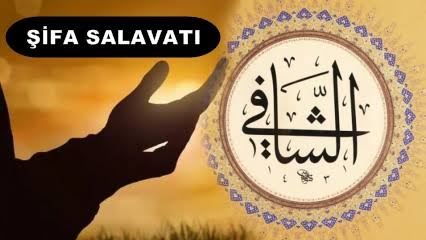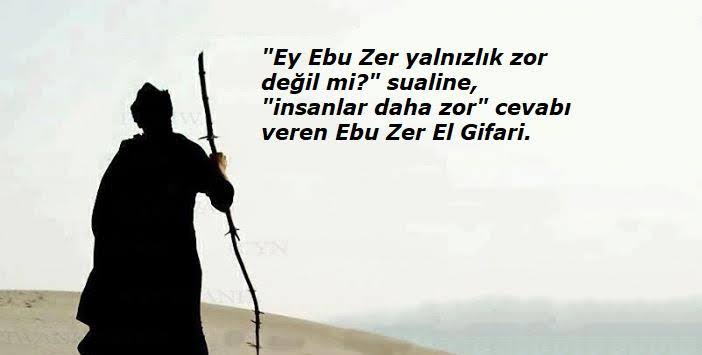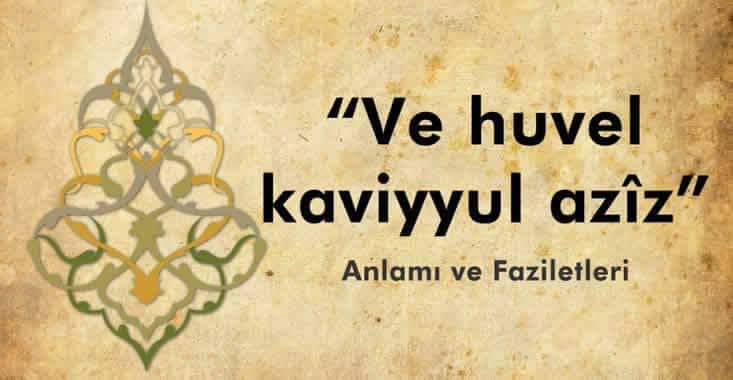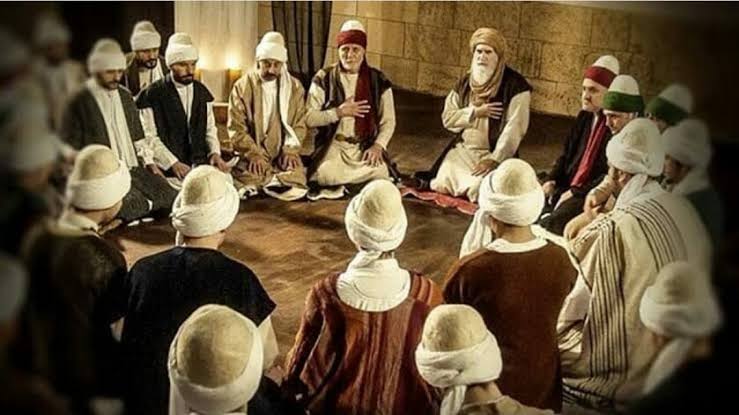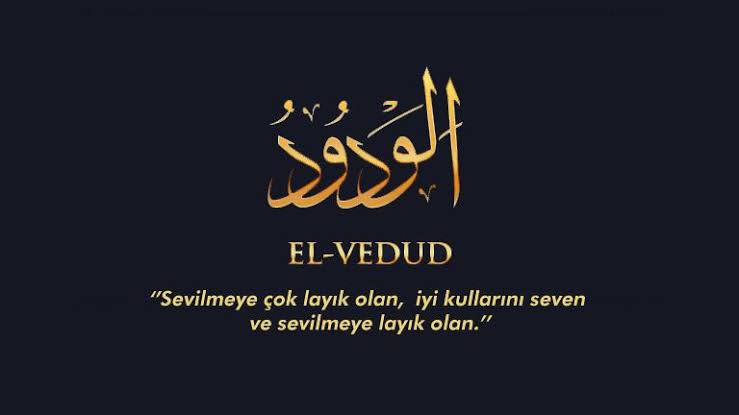Yabancı Dillerin İcadı Ve Tarihçesi

Yabancı dillerin tarihini İslami belgelere dayanarak sizler için derledik. İşte ayrıntılar…
Yüce Allah, peygamber olarak gönderdiği kullarına kudsî dâvâlarına delil olması için mucizeler ihsan etmiştir. Meselâ, Hz. İsâ (as)’ın ölüleri diriltmesi, anadan doğma körlerin gözlerini açması; Hz. Davud (as)’ın demiri hamur gibi yoğurup her türlü şekli vermesi, Hz. Süleyman (as)’ın rüzgâra binip iki aylık mesafeyi bir günde alması, Hz. İbrahim(as) ’i ateşin yakmaması gibi…
Hz. Âdem (as)’in en büyük mucizesi de Cenab-ı Hakk’ın ona bütün lügat ve dilleri öğretip, bütün eşyanın ismini bildirmesidir. Peygamberlerin hepsine verilen mucizelerde olduğu gibi, Hz. Âdem (as)’in bu mucizesi de Kur’ân-ı Kerim’de anlatılmaktadır. Buna her şeyin ismini, mahiyetini, dillerin ve lügatlerin öğretilmesi mânâsında “taallüm-ü esma, tâlim-i esmâ” denmektedir.
Bakara Sûresinin “ve alleme Âdeme’l-esmâe” ile başlayan 31-33. âyet-i kerimelerinde bu husus genişçe anlatılır. Cenab-ı Hak Hz. Âdem (as)’e bütün varlıkların isimlerini öğretince, daha sonra meleklere hitaben: “Haydi dâvânızda doğru iseniz bana şunları isimleriyle haber verin.” buyurdu. Melekler âcizlik ve bilgisizliklerini arz edince, Hz. Âdem (as)’e, “Ey Âdem, bunlara onları isimleriyle haber ver.” emri üzerine, Hz. Âdem (as) Allah’ın kendisine öğrettiği bütün isimleri meleklere teker teker saydı.
Tefsirlerimizde Hz. Âdem (as)’e öğretilen bu isimlerden maksadın hem diller, hem de varlıkların mahiyet ve sıfatları olduğu bildirilmektedir. Meselâ zamanımız müfessirlerinden Elmalılı M. Hamdi, bütün ilimler gibi dillerin farklı oluşunun da Hz. Âdem (as)’in bu mucizesine dayandığına dikkat çekmekte ve şöyle demektedir:
“Lisan hususunda bütün benîâdem’in (insanoğlunun) zamanımıza kadar tenevvü (farklı, çeşitli olmasının) ve terekkiyatının cümlesi, esas itibariyle Hz. Âdem’in fıtraten mazhar buyurulduğu bu talim-i esmâ hâdisesine medyundur (borçludur).” (Hak Dini Kur’ân Dili, I/310)
Fahri Râzi ise et-Tefsîrü’l-Kebîr isimli tefsirinde bu hususa bir açıklık getiriyor ve özetle şöyle diyor:
“Cenab-ı Hak, Hz. Âdem’e, yaratmış olduğu bütün varlıkların isimlerini, âdemoğlunun konuştuğu çeşitli dillere göre öğretti. Âdem (a.s.) de bunları evlatlarına öğretti. O vefat ettikten sonra çocukları yeryüzünün çeşitli bölgelerine dağıldılar. Her biri belli bir dille konuşmaya başladı. Ve artık onda ve orada o dil hâkim oldu. O bölgede diğer diller unutuldu. İşte Hz. Âdem’in çeşitli dillerle konuşmasının sebebi budur.” (et-Tefsîrül-Kebir, 2:176)
İşte bütün ilimlerin kaynağı, Hz. Âdem (as)’in bu taallüm-ü esmâ mucizesine dayanmaktadır. Bu mucizeyi Bediüzzüman Hazretleri şöyle ifade eder:
“Sâir enbiyânın (peygamberlerin) mucizeleri, birer hususi harika-i beşeriye remzettiği gibi, bütün enbiyânın pederi ve divan-ı nübüvvetin fâtihası olan Hz. Âdem’in (a.s.) mucizesi, umum kemâlat ve terakkiyat-ı beşeriyenin nihâyetlerine ve en ileri hedeflerine sarahate yakın işaret ediyor.” (Sözler, s. 244)
İşârâtü’l-Îcaz isimli tefsirinde ise âyet-i kerimede geçen “el-esmâe” kelimesini tefsir ederken bu kelimenin isim, sıfat ve haysiyet gibi eşyayı, varlıkları birbirinden ayıran ve tayin eden alâmet ve nişanlara işaret ettiği gibi, aynı zamanda insanların konuşmuş olduğu çeşitli dil ve lügatlere de işaret ettiğini izah etmektedir. (İşârâtül-İcâz, s. 218)
Evet, aynı anne-babadan çoğalan âdemoğullarının zamanla farklı dil konuşmalarının izahı güvenilir kaynaklarda bu şekilde yapılmaktadır.
Ancak bugün dünyada konuşulan bütün dillerin Hz. Âdem (as)’in çocuklarından kaldığını söylemek eksik olur. Zamanla bir dilden birkaç dil türemiş, lehçe farklılıkları farklı bir dil haline gelmiştir. Meselâ bugün Türkçe konuşan iki yüz milyonun üzerinde insan vardır. Fakat ayrı ülke, kültür ve çevrede yaşamanın verdiği değişiklikler aslında bir olan Türkçenin Kazakça, Kırgızca, Çağatayca, Uygurca, Göktürkçe gibi telâffuzu, konuşulması gibi bazı farklılıklar arz ederek ayrı bir dil haline bürünmesine sebep olmuştur. Asılları Lâtince olan Fransızca ve İtalyanca gibi Batı dilleri için aynı şeyi söylemek mümkündür. Sonradan gelişen ve konuşulan diller farklı da olsa, aslı birdir ve öyle kabul edilir.
Tarihî seyri böyle olmakla beraber, dillerin farklılığında asıl düşünülmesi gereken cihet, altındaki İlâhî hikmet ve kudrettir. Dillerin farklı oluşu da Allah’ın varlık ve birliğini gösteren delillerdir. Bir âyet-i kerimede meâlen bu husus şöyle ifade buyurulur:
“Gökleri ve yeri yaratması, dillerinizin ve renklerinizin birbirinden farklı olması da Onun kudretinin delillerindendir. Şüphesiz ki, bunlarda bilenler için ibretler vardır.” (Rûm, 30/22)
Dillerin ayrı ayrı olması insanların birbirlerini tanıması ve münasebet kurması için bir vesile ve imkândır. Nasıl ki, millet millet, kabile kabile yaratılmamızda insanlar olarak birbirimizle tanışmamız, kaynaşıp münasebet kurmamız hikmeti gözetilmişse, dillerin farklı olması da bu hikmete yöneliktir.
Kaynak: sorularlaİslamiyet
Yabancı dillerin tarihini sizler için derledik. Bu konu hakkında ki soru ve düşüncelerinizi, yorumlar da bizimle paylaşmayı unutmayın…
🎉Sihirli Yelpaze Sundu🎭
Makalemizi paylaşmayı ve duygularınızı emoji simgeleriyle ifade etmeyi unutmayın 🤗
Makalenin İngilizcesi ;
🎉Offers a Magic Fan🎭
We have compiled the history of foreign languages for you based on Islamic documents. Here are the details…
Almighty Allah has bestowed miracles on His servants, whom He sent as prophets, to be evidence for their holy cause. For example, Hz. Isa (as) resurrecting the dead, opening the eyes of the born blind; Hz. The fact that David (as) kneaded the iron like dough and gave it all kinds of shapes, Hz. The Prophet Solomon (as) got on the wind and covered the distance of two months in one day. Just like the fire didn’t burn Ibrahim(as)…
Hz. The greatest miracle of Adam (as) is that Almighty Allah taught him all the dictionaries and languages, and informed him of the names of all things. As with the miracles given to all prophets, Hz. This miracle of Adam (as) is also described in the Qur’an. This is called “taalüm-ü esma, tâlim-i esmâ” in the sense of teaching the names, natures, languages and dictionaries of everything.
31-33 of Surah Baqara, starting with “ve alleme Âdeme’l-esmâe”. This issue is explained extensively in the verses of the Qur’an. Allah Almighty When he taught Adam (as) the names of all beings, he then addressed the angels: “If you are correct in your case, tell me the names of these.” he commanded. When the angels presented their helplessness and ignorance, Hz. He said to Adam (as), “O Adam, inform them by their names.” On the order of Hz. Adam (as) enumerated all the names that Allah taught him to the angels one by one.
In our tafsir. It is stated that the purpose of these names taught to Adam (as) is both languages and the nature and attributes of beings. For example, Elmalılı M. Hamdi, who is one of the commentators of our time, states that the difference of languages, like all sciences, is Hz. He draws attention to the fact that he is based on this miracle of Adam (as) and says:
“With regard to language, the sentence of tenawwu (difference, diversity) and evolution of all human beings (human beings) until our time is essentially the same as Hz. He is in debt (debt) to this event of esmâ education, in which Adam is honored by nature.” (Hak Dini Qur’an Language, I/310)
Fahri Razi, on the other hand, clarifies this issue in his tafsir called et-Tafsîrü’l-Kebir and summarizes as follows:
“Allah Almighty taught Adam the names of all the creatures He created according to the various languages spoken by the son of Adam. Adam (pbuh) taught these to his children. After he passed away, his children dispersed to various parts of the earth. Each of them spoke a certain language. And now that language has dominated him and there. Other languages have been forgotten in that region. This is the reason why Prophet Adam spoke in various languages.” (et-Tafsirül-Kebir, 2:176)
Here is the source of all sciences, Hz. It is based on the miracle of Adam’s (as) taallum-u esma. Bediuzzaman describes this miracle as follows:
“As the miracles of the other prophets (prophets) refer to special wonders of humanity, Hz. Adam’s (a.s.) miracle points to the end and the most advanced goals of the general perfection and progress of humanity, close to clear. (Words, p. 244)
While interpreting the word “al-esmâe” in the verse in his tafsir called İşârâtü’l-İcaz, this word indicates the signs and marks that distinguish and designate things such as names, adjectives and dignity, and at the same time there are various kinds of people who have spoken. explains that it also points to language and dictionaries. (Isârâtül-İcâz, p. 218)
Yes, the explanation of the different languages spoken by the sons of Adam, who grew up from the same parents, is done in this way in reliable sources.
However, all the languages spoken in the world today are Hz. It would be an understatement to say that Adam (as) remained from his children. Over time, several languages have emerged from one language, and dialect differences have become a different language. For example, there are over two hundred million people who speak Turkish today. However, the changes caused by living in a different country, culture and environment have caused Turkish, which is actually one, to become a separate language by presenting some differences such as Kazakh, Kyrgyz, Chagatai, Uyghur, Gokturk, and how it is spoken. The same can be said for Western languages, such as French and Italian, whose origins are in Latin. Even if the languages developed and spoken later are different, they are the same and are accepted as such.
Although its historical course is like this, the main point to be considered in the difference of languages is the divine wisdom and power underlying it. The diversity of languages is also evidence that shows the existence and oneness of Allah. In a verse, this issue is expressed as follows:
“The fact that He created the heavens and the earth, and that your languages and colors are different from each other are proofs of His might. Surely, in these are signs for those who know.” (Rûm, 30/22)
The fact that languages are separate is an occasion and opportunity for people to get to know each other and establish relationships. Just as the wisdom of meeting each other, getting to know each other and establishing relations as human beings was taken into account in our creation as a nation, nation, tribe, the fact that languages are different is also for this wisdom.
Source: Islam with questions
We have compiled the history of foreign languages for you. Do not forget to share your questions and thoughts on this subject, as well as in the comments…
🎉Magic Fan Presented🎭
Don’t forget to share our article and express your feelings with emoji icons 🤗



